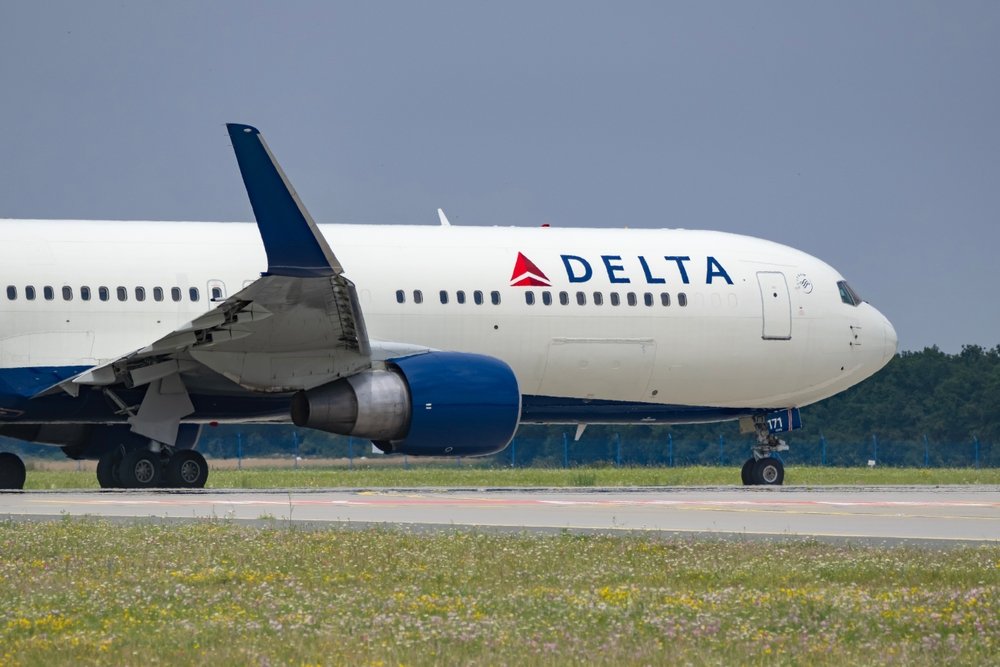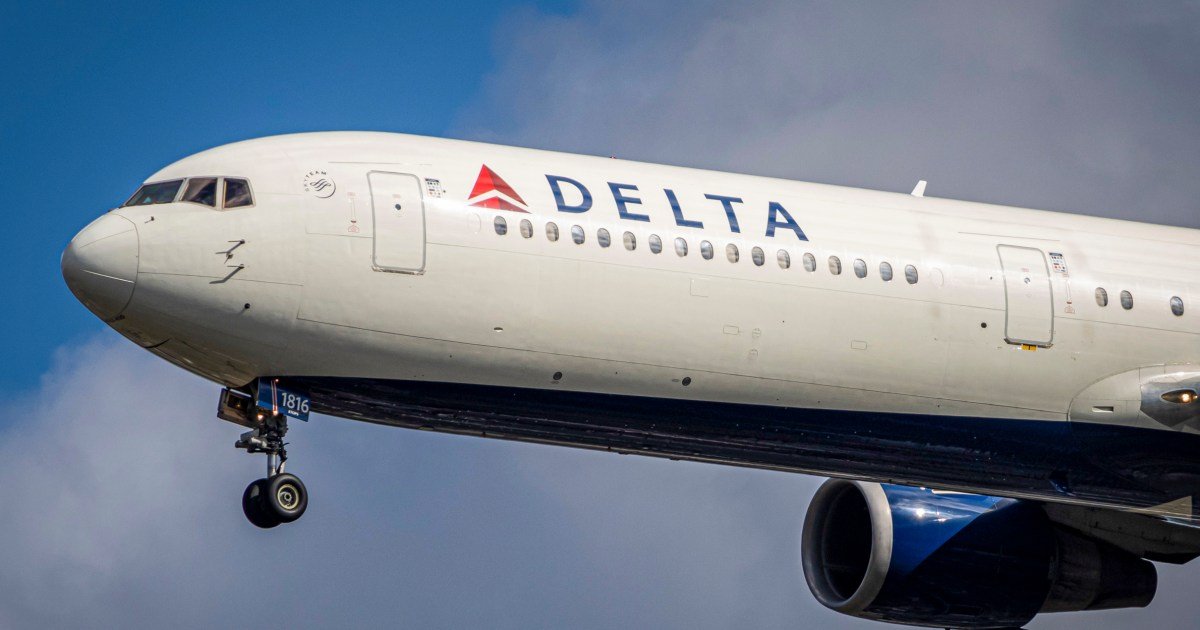AI in Travel
OpenAI and Singapore Tourism: The Future Of AI Powered Travel

Wednesday, July 30, 2025
In a historic first for the global tourism sector, the Singapore Tourism Board (STB) has developed a partnership with OpenAI – becoming the first national tourism organization in Asia to work with the artificial intelligence (AI) lab on what is set to be a dynamic destination marketing initiative. The partnership, which is encapsulated in a Memorandum of Understanding (MoU), will help drive a bold new transformation of Singapore’s tourism landscape by leveraging Advanced AI to enhance the visitor experience, drive operational efficiency, and enhance destination marketing.
This is an important milestone as Singapore takes further steps as a forward-looking city to pilot these innovative solutions that meet the needs of global travelers today. While the #travel industry is becoming increasingly competitive and consumer demands evolve faster than ever, this partnership is a way to help cushion the tourism industry against future challenges.
How Innovative is Singapore as a Tourist Destination?
The collaboration between STB and OpenAI is more about parroting the new cool kid in tech town, and more about lighting the way for the future of tourism in Singapore through AI. As can be seen in STB’s own Tourism 2040 roadmap, the industry’s long-term vision focuses heavily on new technologies such as AI to deliver personalized and context-aware experiences for tourists. This partnership directly contributes to that goal by using OpenAI’s cutting-edge talent in ML and NLP.
Under the partnership, OpenAI will team up with STB to integrate its technologies across applications such as visitor engagement, operations, productivity solutions, and destination marketing. Ultimately, by incorporating AI, visitors and tourism industry players are expected to benefit from more personalized and immersive experiences.
Advanced AI – What Does it Mean and How Will This Affect Tourism?
Advanced AI, which is also referred to as advanced-level artificial intelligence, is one that performs complex cognitive tasks. From understanding natural languages, to processing billions of pieces of data, to replying like a human, to tailoring a response based on a user’s needs. For travel, that might lead to smarter systems that suggest activities, help travelers in several languages, and generate dynamic, immersive storytelling experiences.
“The implementation of OpenAI’s solution by STB will allow for visitors to enjoy greater service personalization through more conversational and fingertip interactions. For instance, AI could offer personalized recommendations to travelers based on their taste, past travel history, even news, and real-time data in order to improve the experience of visiting a place. In addition, multilingual AI assistants will reduce language obstacles and make Singapore more accessible to the world.
What the Partnership Will Change About Destination Marketing
Continue reading Destination marketing, which for tourism promotion has long been a staple, and now, Singapore is employing AI to reimagine how it connects with prospective visitors. OpenAI’s platform will enable the STB to better tailor outreach efforts such as more-targeted campaigns, personalised messaging, and adaptive content. In place of throwaway advertising, users will get condensed, contextual, and timely information about the stuff they care about, where they are headed.
This move to AI-driven marketing will better enable Singapore’s tourism industry to shine on the world stage, providing not just generic information but hyper-personalised ABIs that predict the needs and desires of each visiting individual. This will enable tourism entities to offer what appeals to their target audience, creating a closer relationship and leading to higher levels of satisfaction.
Improving Visitor Experience Through Immersive Storytelling
One of the most interesting parts of this collaboration is the opportunity to apply AI in the form of storytelling. Immersive storytelling is one of the most popular trends in the travel industry, and AI can elevate it to the level of making storied experiences that are extremely personalized and context-dependent for every visitor. Think of yourself taking a stroll in one of Singapore’s heartland neighborhoods, and the app, powered by AI, whispering to you stories about the cultural importance of the places you are visiting, curated to your preferences or relevant past engagements.
Not only will this technology enhance travel, but it can also build stronger visitor emotional connections, turning an ordinary vacation into an unforgettable journey. Whatever you’d like to be introduced to: Singapore’s rich culture; heritage trails; nature trails — artificial intelligence will be instrumental in making these experiences a reality, in ways we previously could not conceive.
Long-Term Benefits of Emerging Technologies in Singapore’s Tourism Sector
This collaboration is bigger than technology — it’s all the way from building an ecosystem of tourism that everyone makes use of. For attendees, AI means personalized, expedient, and immersive experiences. For businesses in tourism, it provides a means to improve efficiency, cut costs, and increase productivity by making decisions based on data. For the Singapore Tourism Board, the introduction of Advanced AI will provide an opportunity for them to change the way the world thinks about Singapore as a tourism destination.
What’s more, the partnership is a stride into sustainable expansion. With AI solutions, Singapore will not be putting too much strain on its resources while maximizing the potential of the tourism experience. By providing tailor-made experiences, A.I. could guide visitors to lesser-known sights, alleviating the pressure on already crowded spots and spreading tourism more evenly across the city. Such an approach focusing on sustainability will be important in the context of further tourism growth in the world.
Coming Up: The Future of AI in the Global Tourism Industry
Singapore is at the forefront of innovation applied to the travel industry and leading by example to the rest of the world as the first national tourism organization across Asia to harness OpenAI’s technology. “I would not be surprised to see other countries and cities that wish to stay competitive in the rapidly changing tourism landscape to explore similar AI-driven strategies a la Singapore”.
This cross-industry collaboration with the Singapore Tourism Board marks the beginning of a new and exciting era of travel — one that combines personalization with cultural immersion, facilitated by cutting-edge technology. And, as AI continues to advance, the potential to facilitate a richer visitor experience will continue to rise.
(Source: Singapore Tourism Board, OpenAI)
AI in Travel
Delta rejects AI pricing under political heat

Major Carrier Commits to Fair Pricing Amid Growing Congressional Scrutiny
Delta Air Lines has taken a definitive stance against artificial intelligence-powered personalized ticket pricing, responding to mounting pressure from federal lawmakers and widespread consumer anxiety about algorithmic discrimination in air travel costs.
The Atlanta-based carrier’s position emerged following sharp criticism from prominent Democratic senators who questioned whether the airline planned to use AI technology to extract maximum revenue from individual passengers based on their personal financial profiles.
Congressional Pushback Intensifies
Democratic Senators Ruben Gallego of Arizona, Mark Warner of Virginia, and Richard Blumenthal of Connecticut spearheaded the legislative challenge, arguing that AI-driven individualized pricing could exploit travelers by calibrating fares to their perceived ability to pay premium rates.
The senators’ concerns centered on algorithmic pricing systems that could analyze personal data — from browsing history to demographic information — to determine how much each customer might be willing to spend on airfare.
Delta’s response was unequivocal. The airline categorically denied any intention to implement pricing algorithms that target individual consumers with customized rates based on personal information. This commitment represents a significant policy declaration in an industry increasingly embracing artificial intelligence across operations.
Technology Integration Without Personalization
While rejecting personalized AI pricing, Delta plans substantial technological advancement through its partnership with Fetcherr, an AI pricing specialist. The collaboration aims to deploy AI-based revenue management systems across 20 percent of the carrier’s domestic route network by late 2025.
The distinction Delta emphasizes lies in data aggregation versus individual targeting. The airline maintains its pricing algorithms will analyze broad market trends, competitive landscapes, and general demand patterns rather than personal consumer profiles.
This approach reflects traditional airline revenue management practices that have utilized dynamic pricing for three decades, adjusting fares based on factors like seasonal demand, fuel costs, and competitive positioning.
Industry-Wide Ethical Concerns
American Airlines Chief Executive Robert Isom echoed Delta’s position, stating that AI-driven personalized pricing could fundamentally undermine passenger trust in airline fairness. His comments suggest growing industry recognition that aggressive algorithmic pricing could trigger regulatory backlash and consumer boycotts.
The airline industry’s cautious approach contrasts sharply with retail sectors where personalized pricing has become increasingly common, particularly in e-commerce platforms that adjust prices based on user behavior and demographics.
Legislative Response Takes Shape
Representatives Greg Casar of Texas and Rashida Tlaib of Michigan have introduced federal legislation specifically targeting AI pricing discrimination. Their proposed bill would prohibit companies from using artificial intelligence to set individualized prices or wages based on sensitive personal data.
The legislation addresses scenarios where algorithms might exploit vulnerable moments, such as raising travel prices for individuals searching for family funeral information or medical emergency travel.
A Federal Trade Commission report released in January documented widespread retail use of personal information for price customization, highlighting consumer vulnerability to algorithmic manipulation across multiple industries.
Market Dynamics and Consumer Protection
Delta‘s commitment comes as airlines face unprecedented scrutiny over pricing transparency and fairness. The carrier emphasized that its pricing philosophy will continue reflecting market-wide factors rather than individual consumer analysis.
The airline industry’s embrace of artificial intelligence spans multiple operational areas, from route optimization to customer service automation. However, pricing applications have generated the most significant regulatory and public relations challenges.
Senator Gallego acknowledged Delta’s commitment while pressing for greater transparency about data collection practices and pricing methodologies. His comments highlighted ongoing congressional interest in monitoring airline compliance with anti-discrimination principles.
The debate reflects broader societal tensions about artificial intelligence applications in consumer-facing industries, particularly where algorithmic decisions could exacerbate economic inequality or exploit personal circumstances.
Delta’s proactive stance may influence competitor policies and establish industry standards for ethical AI implementation, potentially preventing more restrictive federal regulations while maintaining consumer confidence in airline pricing fairness.
AI in Travel
India Emerges as a Leader in AI Adoption and Travel Enhancement, ETTravelWorld

Indian travellers are embracing AI like never before. According to Booking.com’s Global AI Sentiment Report, Indian consumers are among the most positive globally towards artificial intelligence, with 99 per cent expressing excitement, 98 per cent open to using AI in travel, and 96 per cent familiar with the technology.
However, while enthusiasm runs high, trust in full AI autonomy lags. Only 16 per cent of Indian travellers fully trust AI, and just 12 per cent are comfortable with AI making independent travel decisions without human input. The majority see AI as a powerful assistant—not a replacement—for human judgment.
“Generative AI represents one of the most significant technological shifts of our era,” said Santosh Kumar, Regional Manager, South Asia, at Booking.com. “In India, people are not just curious — they’re actively using AI to shape better travel experiences. The opportunity is enormous, but so is our responsibility to guide travellers with trust and transparency.”
Key India-Specific Insights from the Report:
Top travel AI uses: researching destinations (53 per cent ), finding local experiences (44 per cent ), and getting restaurant recommendations (42 per cent )
– In-trip AI use: translation (55 per cent ), local suggestions (52 per cent ), navigating transport (41 per cent )
– Post-trip AI use: photo editing (51 per cent )
– 45 per cent trust AI assistants more than travel bloggers (36 per cent ) or social media influencers (31 per cent )
– 87 per cent already use AI for some aspect of travel
– 82 per cent value AI tools that reduce crowding and overtourism
Despite this uptake, 92 per cent of Indian respondents still express at least one concern around AI, particularly its impersonal nature and the need for verification: 32 per cent always fact-check AI results, and 38 per cent find it lacks the human touch.
The report categorizes Indian AI sentiment into groups:
– 46 per cent – AI Enthusiasts
-28 per cent – AI Advocates
– 10 per cent – AI Detractors
– 5 per cent – AI Cautious
– 4 per cent – AI Skeptics
Globally, APAC ranks among the most AI-friendly regions, while North America and Europe exhibit more skepticism and demand for transparency.
Bottom Line:
India is leading the charge into AI-powered travel, driven by curiosity, convenience, and a willingness to experiment—but travellers still want human validation. Booking.com is building on this momentum to make AI a more transparent, empowering tool for the next generation of global explorers.
AI in Travel
Delta Air Lines assures U.S. lawmakers it will not personalize fares using AI

WASHINGTON – Delta Air Lines said on Friday it will not use artificial intelligence to set personalized ticket prices for passengers after facing sharp criticism from U.S. lawmakers and broad public concern.
Last week, Democratic Senators Ruben Gallego, Mark Warner and Richard Blumenthal said they believed the Atlanta-based airline would use AI to set individual prices, which would “likely mean fare price increases up to each individual consumer’s personal ‘pain point.’”
Delta said it has not used AI to set personalized prices but previously said it plans to deploy AI-based revenue management technology across 20% of its domestic network by the end of 2025 in partnership with Fetcherr, an AI pricing company.
“There is no fare product Delta has ever used, is testing or plans to use that targets customers with individualized prices based on personal data,” Delta told the senators in a letter on Friday, seen by Reuters. “Our ticket pricing never takes into account personal data.”
Senators praised Delta’s commitment not to use AI for personal pricing but expressed many questions and want more details about what data Delta is collecting to set prices.
“Delta is telling their investors one thing, and then turning around and telling the public another,” Gallego said. “If Delta is in fact using aggregated instead of individualized data, that is welcome news.”
Delta declined comment on Gallego’s statement.
The senators cited a comment in December by Delta President Glen Hauenstein that the carrier’s AI price-setting technology is capable of setting fares based on a prediction of “the amount people are willing to pay for the premium products related to the base fares.”
Last week, American Airlines CEO Robert Isom said using AI to set ticket prices could hurt consumer trust.
“This is not about bait and switch. This is not about tricking,” Isom said on an earnings call, adding “talk about using AI in that way, I don’t think it’s appropriate. And certainly from American, it’s not something we will do.”
Democratic lawmakers Greg Casar and Rashida Tlaib last week introduced legislation to bar companies from using AI to set prices or wages based on Americans’ personal data and would specifically ban airlines raising individual prices after seeing a search for a family obituary.
They cited a Federal Trade Commission staff report in January that found “retailers frequently use people’s personal information to set targeted, tailored prices for goods and services — from a person’s location and demographics, down to their mouse movements on a webpage.”
The FTC cited a hypothetical example of a consumer profiled as a new parent who could intentionally be shown higher-priced baby thermometers and collect behavioral details to forecast a customer’s state of mind.
Delta said airlines have used dynamic pricing for more than three decades, in which pricing fluctuates based on a variety of factors like overall customer demand, fuel prices and competition, but not a specific consumer’s personal information.
“Given the tens of millions of fares and hundreds of thousands of routes for sale at any given time, the use of new technology like AI promises to streamline the process by which we analyze existing data and the speed and scale at which we can respond to changing market dynamics,” Delta’s letter said.
-

 Brand Stories2 weeks ago
Brand Stories2 weeks agoBloom Hotels: A Modern Vision of Hospitality Redefining Travel
-

 Brand Stories1 week ago
Brand Stories1 week agoCheQin.ai sets a new standard for hotel booking with its AI capabilities: empowering travellers to bargain, choose the best, and book with clarity.
-

 Destinations & Things To Do2 weeks ago
Destinations & Things To Do2 weeks agoUntouched Destinations: Stunning Hidden Gems You Must Visit
-

 Destinations & Things To Do1 week ago
Destinations & Things To Do1 week agoThis Hidden Beach in India Glows at Night-But Only in One Secret Season
-

 AI in Travel2 weeks ago
AI in Travel2 weeks agoAI Travel Revolution: Must-Have Guide to the Best Experience
-

 Brand Stories4 weeks ago
Brand Stories4 weeks agoVoice AI Startup ElevenLabs Plans to Add Hubs Around the World
-

 Brand Stories3 weeks ago
Brand Stories3 weeks agoHow Elon Musk’s rogue Grok chatbot became a cautionary AI tale
-

 Asia Travel Pulse4 weeks ago
Asia Travel Pulse4 weeks agoLooking For Adventure In Asia? Here Are 7 Epic Destinations You Need To Experience At Least Once – Zee News
-

 AI in Travel4 weeks ago
AI in Travel4 weeks ago‘Will AI take my job?’ A trip to a Beijing fortune-telling bar to see what lies ahead | China
-

 Brand Stories4 weeks ago
Brand Stories4 weeks agoChatGPT — the last of the great romantics













You must be logged in to post a comment Login